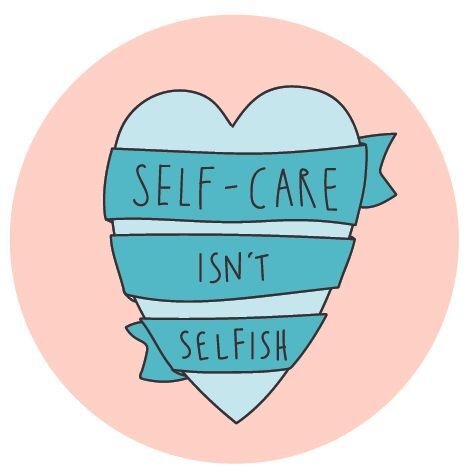
Self-Care: the practice of taking an active role in protecting one's own well-being and happiness.
Self-care is important to maintaining a healthy relationship with yourself. It means doing things to take care of our minds, bodies, and souls by engaging in activities that promote well-being and reduce stress. Doing so enhances our ability to live fully, vibrantly, and effectively.
Hear how our staff practice self-care and tips for others.
- Ashton, Family Advocate & MDT Coordinator
- One way that I like to practice self care is by taking time to check in on my mental well-being and do activities that are enjoyable and relaxing in my free time. I try to be in tune with my mental well-being by being aware of thoughts and feelings that I’m having and if those are healthy. For example, if I’m feeling more anxious about something than I may think would be normal for me, I check in on that and try to determine what is causing those elevated feelings of anxiety. From there, I focus on reducing anxiety by doing things that are enjoyable and relaxing. For me, those are things that are more calming such as doing something simple and creative, taking time to rest, or spending time with those that I care about.
- A tip for parents to practice self care is to be mindful of how you’re feeling. Have regular check-ins with yourself where you think about the ways you’re reacting to situations and how you conduct yourself with your children and those around you. As a parent, your life is busy and stressful! It’s easy to get caught up in the motions of day-to-day life and forget to take time to check in on your mental well-being. Checking in on yourself could be as simple as spending a few minutes over the weekend reviewing your week and considering if there are situations you could have handled differently or if there are situations you think you handled well. If you’re having a week where you feel “off” or aren’t happy with how you’re feeling, try out some simple self-care ideas! Self-care doesn’t have to be fancy, just something that you find enjoyable and relaxing. There are lots of ideas on the internet you can try.
- Katie, Therapist & Forensic Interviewer
- To me, self-care is making sure that you aren’t overloading yourself so that you can be the best version of yourself for others. In the helping profession, it can be so easy to give to others and disregard your own needs in the process. Self-care is so important because we can’t genuinely provide for others if we are drowning in the process. For my self-care, I enjoy doing art, going on walks, and taking baths.
- A self-care tip for teens: If possible, try to implement self care practices that do not rely on screen time. Internet and technology can often be a source of anxiety or self-esteem issues for teens. It is important to find something that genuinely brings comfort and stillness without distraction. These can include painting your nails, listening to music, going on a walk, etc.
- Kodi, Therapist
- Self-care to me is intentionally giving yourself time to pay attention to your needs and then subsequently setting aside time to tend to them. (i.e. activity, relaxation, calm, fulfillment, celebration, reflection.)
- Self-care tip for teens- during your morning routine take a mindful minute. Do a body scan. What do you notice? What can you sit with and appreciate or what can you change? Notice your mind-body connection. That’s it! The self-care is simply just taking notice.
- Ashley, Therapist & Forensic Interviewer
- Self-care looks different for each individual since the specific needs of each person are different. Self-care for me does not involve pampering or much alone time. My best self-care right now is quality time with my family. In another season, when I was a stay-at-home-mom, self-care involved more solitude and time to remind myself I was my own individual with interests I could explore and needs that should be met. Now that I work full-time listening to trauma stories nearly every day, I refuel by reading books with happy endings, watching happy shows/movies, and spending quality time with my kids and husband. Spending time with my family and being the one to meet their needs offers me the separation I need from the work I do. It reminds me that I am my own individual with interests I can explore and personal needs that should be met, much like I needed in an earlier season. Whatever breathes life back into your weariness and gives you needed rest when you are tired is good self-care, and it may change as your role or season of life changes. That’s a good thing.
- A self-care tip for children would be to pay attention to their cries for breaks in their busy schedules. Don’t be afraid to offer rest to them in ways that you can. They will not be able to communicate their need with their words, but they will communicate it to you with their behaviors and body responses. Tantrums, dysregulation, overstimulation, and trouble sleeping may be pointing to an easily met underlying need for down time. Stomach aches, head aches, and body aches may not just be an attempt to skip school. Instead, they might be the way their body is responding to stress and anxiety, and children do not have the skills to process those without the help of the adults in their lives. While we are teaching our children to stay true to their commitments, we may also be teaching them to stay overscheduled and burnt out like many of the adults around them. While we are teaching them the fundamentals of being a part of a team in extracurricular activities, we may be failing to teach them how to be individuals that take care of themselves and their own needs. In order to give their best in the classroom and on the field, they need to be taught to care for their own individual needs for rest and play. Modeling good self-care and requiring it for our kids can give children an understanding and commitment to self-care that could serve them through childhood and into adulthood.
- Jana, Executive Director & Forensic Interview Specialist
- To me, self-care means more than just a pedicure or a bubble bath. Don’t get me wrong, those things are nice and are certainly relaxing. To practice true self-care, it takes a lot of intention, which can be very difficult sometimes with all of the things life throws at us. Trying each day to include stillness and reflection (ex. prayer, meditation, yoga), movement (exercise), and time in nature help us build resiliency. Also, eating healthy foods and focusing on doing things we enjoy can go a long way as well.
- Tips for children: practicing breathing (blowing a pinwheel or blowing bubbles), talking to your family about what you are thankful for, having things you “go to” to help you calm down (fidget toys, stress balls, favorite stuffed animal), playing outside
- Molly, Family Advocate & MDT Coordinator
- Self-care is so essential for our physical and mental well-being. To me, self-care is engaging in activities that promote a positive impact on my current and future health and happiness. Some examples of self-care that I implement into my life include prioritizing my mental and physical health, getting an adequate amount of sleep each night, and taking time for myself to participate in healthy and enjoyable activities.
- It is so important that we overcome the social, mental, and emotional barriers to self-care. We must first understand the importance of taking care of ourselves and learning how to implement self-care into our everyday lives. Although it can be challenging as a parent to take time for self-care, it is important to believe that it is acceptable for you to have down time each day. Whether that be writing in your journal or taking a 10-minute walk, your mind, body, and soul need this time to regenerate from the stresses of everyday life.
- Eva, Family Advocate & MDT Coordinator
- Self-care to me means being able to take the time to care for yourself whether it be taking a trip to the lake (my happy place) or just being able to have some quite time by myself.
- A self-care tip for parents/caregivers would be “to always take care of yourself because you’re not able to be the best parent or caregiver you can be without being a healthy and positive role model for your children.”


































